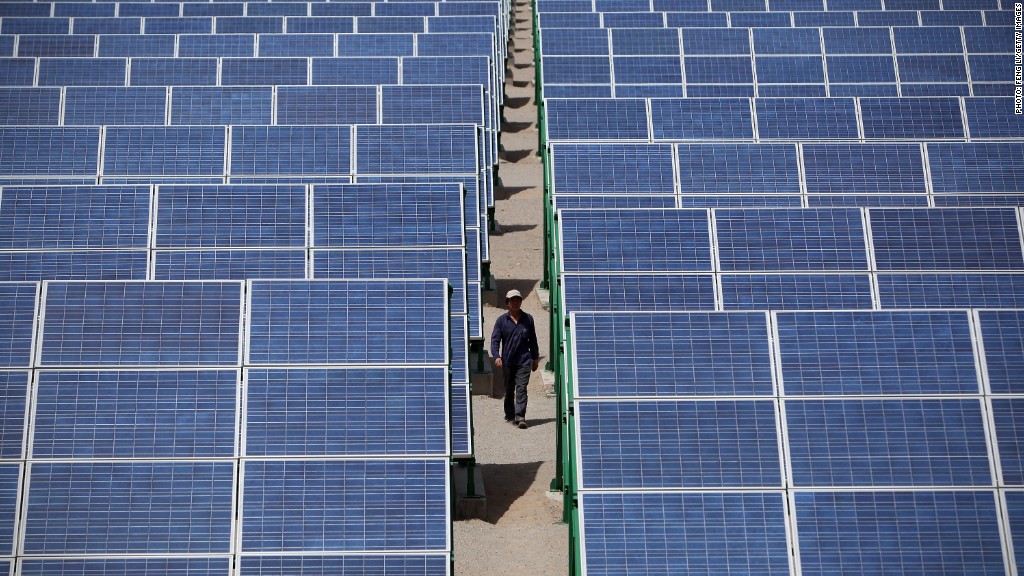
China and the European Union have reached an agreement over low-cost solar panels that should help reduce tensions between the key trading partners.
The deal, reached after weeks of negotiations, will allow Chinese solar panel producers to export their goods to Europe, provided they offer the products above a minimum price. Chinese companies that agree to the terms will avoid the severe tariffs that had been implemented by the EU.
EU Trade Commissioner Karel De Gucht praised the agreement as the solution that "both the EU and China were looking for."
"We have found an amicable solution that will result in a new equilibrium on the European solar panel market at a sustainable price level," he said.
The deal is not likely to please all parties. While the European Commission has not announced the full terms, media reports indicate that the minimum price for Chinese panels has been set at 74 U.S. cents per watt -- a much lower price than had been sought by European manufacturers.
De Gucht, the EU trade chief, is bound to face questions from producers over the price minimum. He must also move to patch up fissures between EU member countries -- some of which had publicly questioned the wisdom of taking China to task over solar panels.
The agreement still needs approval from the European Commission.

The deal should cool tensions between China and the EU, which had been engaged in tit-for-tat retaliatory actions that raised the specter of a trade war.
Related story: China and Europe risk trade war
In recent months, China had launched investigations into European wine and chemical producers. The EU, meanwhile, said in May that it had enough evidence to begin an investigation into Chinese telecoms.
A full-blown trade spat would have resulted in profound consequences for both economies. China is the EU's second biggest trading partner behind the United States, and the EU is China's biggest market. Trade in goods and services between the two totaled nearly 480 billion euros ($638 billion) last year.
The solar panel issue had been by far the most contentious dispute, covering Chinese exports worth about 21 billion euros ($28 billion).
Analysts will now looking for concrete signs that the relationship is on the mend. It's possible, for example, that China will halt its investigation into European wine prices.
Related story: China, OPEC and the future of energy
The trade spat between China and the EU was playing out against an evolving trade landscape, with China, the United States and other countries jockeying for power in Asia.
A slew of trade agreements are currently being negotiated, with the United States working toward the Trans-Pacific Partnership, a pact that many analysts in China view as a hedge against growing Chinese influence.
At the same time, China is pursuing its own objectives and increasing its engagement with international trade arbiters.


